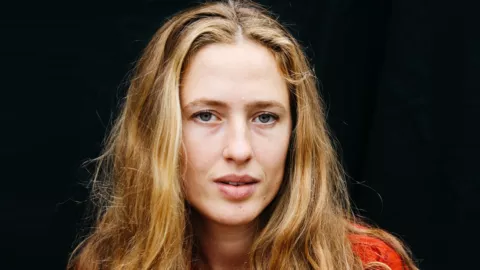
Richard Flanagan’s Question 7 wins The Baillie Gifford Prize for Non-Fiction 2024
19 November 2024
The shortlist for the £30,000 Baillie Gifford Prize for Non-Fiction, which celebrates the best in non-fiction writing, is announced today.
The six titles on this year’s shortlist are:
The six titles chosen by the judging panel span history, popular science and memoir, with themes explored ranging from the many facets of identity; to new understandings of seminal historical moments; and a guide to the algorithmic forces that increasingly govern our world.
Gender and identity are at the heart of Thomas Page McBee’s memoir, Amateur: A True Story About What Makes a Man. In it he examines the complex relationship between masculinity and violence, from his unique perspective as the first trans man to fight in a boxing match at Madison Square Garden. Identity is also the subject under the microscope in Carl Zimmer’s She Has her Mother’s Laugh: The Powers, Perversions and Potential of Heredity, a book that distils the latest thinking on heredity.
History is represented in three of the titles featured on the shortlist. Serhii Plokhy’s Chernobyl looks at the various geopolitical and industrial factors that brought about the 1986 nuclear disaster, while Ben Macintyre’s The Spy and The Traitor brings to life a unique tale of espionage, also set in the Cold War but with contemporary relevance in light of recent headlines and persisting political tensions between the UK and Russia. The third historic work is Stephen R Platt’s Imperial Twilight: The Opium War and the End of China’s Last Golden Age, another title which despite the period covered within makes for compelling reading amidst today’s geopolitical dynamics.
If these titles illustrate the usefulness of historic enquiry in our efforts to grapple with the complex world around us, then Hannah Fry’s Hello World asks readers to confront a future we are already living: that of the near-ubiquitous algorithm and its impact on modern life.
Fiammetta Rocco, chair of the judges, said:
“To judge the 2018 Baillie Gifford prize is to feel once again how miraculous books are. We have read about history and war and science and spying. And along the way we’ve been thrilled, jolted, consoled, informed and illuminated. It’s been a remarkable journey.”
Mark Urquhart, Partner at Baillie Gifford, said:
”We are delighted to support such an important literary award. The quality of the shortlist is testament to the vibrant state of non-fiction writing and we are all looking forward to being stimulated by these titles.”
The 2018 judging panel is chaired by The Economist’s culture correspondent, Fiammetta Rocco. She is joined by Stephen Bush, journalist and political commentator; Susan Brigden, historian; Anne-Marie Imafidon MBE, mathematician and campaigner; and Nigel Warburton, philosopher.
The winner of the 2018 Baillie Gifford Prize for Non-Fiction will be announced on Wednesday 14 November at an awards dinner at RIBA generously supported by the Blavatnik Family Foundation.
The winner will receive £30,000 and each of the shortlisted authors will receive £1,000.
David France won the 2017 prize for his history of AIDS activism, How to Survive a Plague, published by Picador.

17 December 2024

9 October 2024

9 October 2024